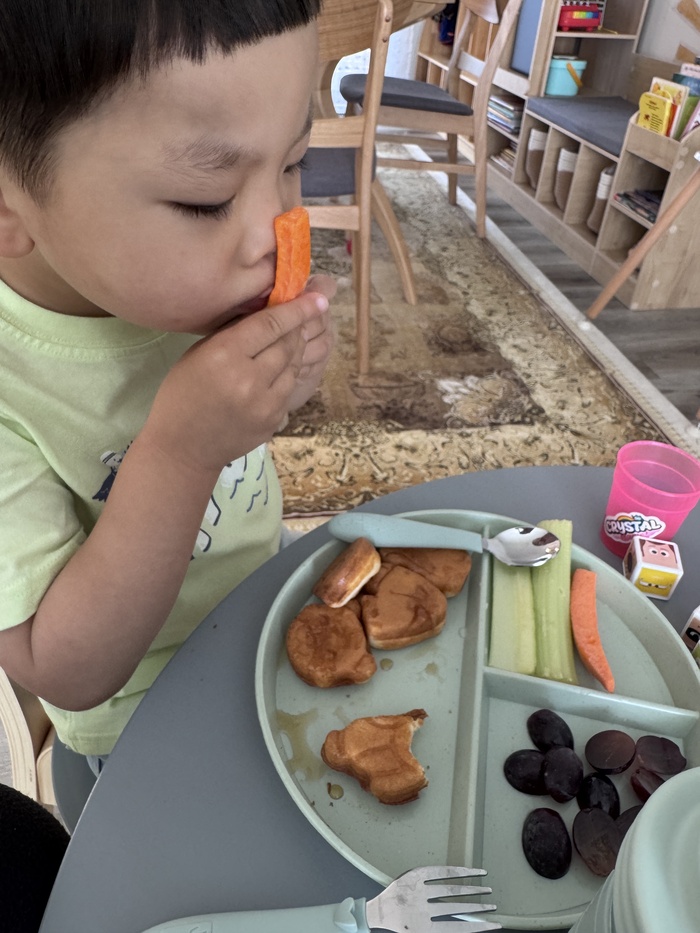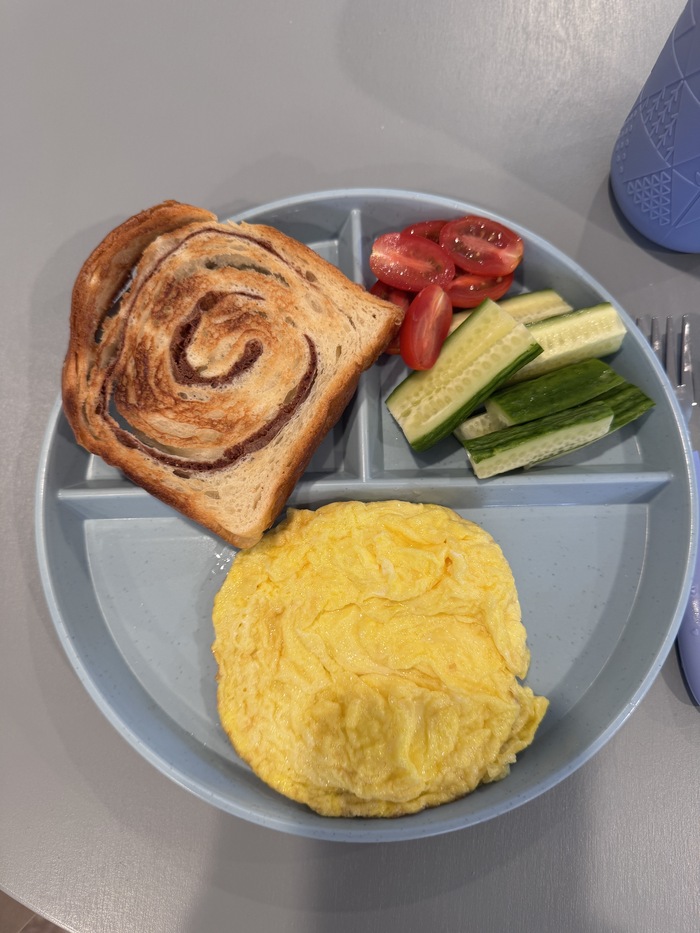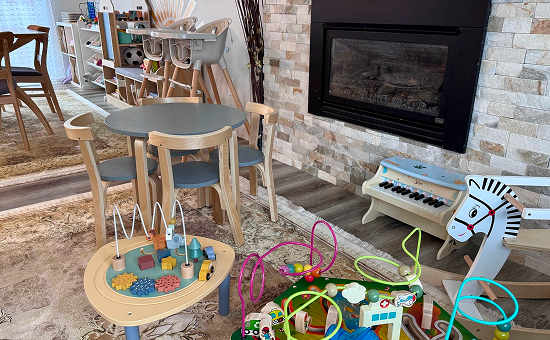As parents, we all want our toddlers to develop a healthy relationship with food. But getting a picky eater to try new foods or even sit still at the dinner table can feel like an uphill battle. What if the solution isn’t forcing them to eat, but inviting them to play? Food play—structured, intentional activities involving food—can be a game-changer for teaching toddlers about eating. Just five minutes of food play each day can spark curiosity, enhance sensory development, and build lifelong healthy eating habits.
In this article, we’ll explore the science behind food play, share practical tips for incorporating it into your toddler’s routine, and provide engaging activities that make mealtimes exciting. Whether you’re a parent in Bothell looking for creative ways to nurture your child’s development or a caregiver seeking new strategies, this guide will show you how small moments of food play can yield big results.
The Power of Food Play: Why It Works
Toddlers are naturally curious, and food play taps into that curiosity by making eating an interactive, sensory-rich experience. According to child development experts, sensory play—engaging the senses of touch, smell, taste, sight, and even sound—helps toddlers process new information and build confidence. When applied to food, this approach can transform mealtimes from stressful to joyful.
Here’s what five minutes of food play can teach your toddler about eating:
- Sensory Exploration: Touching, smelling, and tasting foods in a playful setting helps toddlers become familiar with different textures and flavors, reducing food aversions.
- Fine Motor Skills: Activities like scooping, sorting, or stacking food develop hand-eye coordination and dexterity.
- Food Confidence: Playing with food reduces fear of new items, encouraging toddlers to try unfamiliar foods.
- Language Development: Describing foods (e.g., “crisp carrot” or “squishy avocado”) builds vocabulary and communication skills.
- Healthy Habits: Associating food with fun fosters a positive attitude toward nutritious choices.
By engaging your toddler in short, purposeful food play sessions, you’re setting the stage for a lifetime of healthy eating habits.
The Science Behind Food Play
Research supports the benefits of sensory play for young children. A 2017 study published in the Journal of Child Development found that sensory-based activities, including food play, help children process sensory input, which is critical for cognitive and emotional growth. For toddlers, who are still learning to navigate the world, sensory play with food can reduce picky eating by making unfamiliar foods less intimidating.
Food play also aligns with the principles of occupational therapy, which emphasize sensory integration. When toddlers touch a slimy kiwi or hear the crunch of a cucumber, they’re learning to process sensory information in a safe, controlled way. This builds confidence and reduces sensory sensitivities that often lead to food refusal.

How to Get Started with Food Play
You don’t need to be a chef or a child development expert to introduce food play. Here are some practical tips to make it simple, safe, and fun:
- Start Small: Dedicate just five minutes a day to food play. This could be during a snack, before dinner, or as part of a daycare activity.
- Create a Safe Space: Use a high chair, a kid-friendly table, or a mat to contain messes. A designated space makes cleanup easier and keeps the focus on fun.
- Choose Age-Appropriate Foods: Opt for soft, safe foods like mashed avocado, banana slices, or cooked pasta for younger toddlers. For older toddlers, introduce crunchier options like carrot sticks or apple slices.
- Be Patient: Toddlers may need time to warm up to new foods or textures. Follow their lead and avoid pressuring them to eat.
- Model Playful Behavior: Show enthusiasm by joining in—touch, smell, and taste the food alongside your toddler to make it a shared experience.
5 Fun Food Play Activities for Toddlers
Here are five engaging food play activities that take just five minutes but deliver big learning benefits. Each activity is designed to spark curiosity, build skills, and make food fun.
1. Food Painting
- What You Need: Mashed fruits or vegetables (e.g., avocado, beet puree, or yogurt), a plate, and a clean finger or spoon.
- How to Do It: Let your toddler “paint” with the food on a plate or tray. Encourage them to swirl, smear, or create shapes. Talk about the colors and textures as they play.
- Learning Benefits: Develops fine motor skills, introduces new textures, and encourages creative expression.
- Tip: Use natural food dyes (like beet juice) for vibrant colors without artificial additives.
2. Veggie Sorting Game
- What You Need: A variety of chopped vegetables (e.g., cucumber slices, carrot sticks, cherry tomatoes), small bowls.
- How to Do It: Ask your toddler to sort the veggies by color, size, or shape into different bowls. For example, “Put all the red tomatoes here!” If they’re ready, let them taste a piece after sorting.
- Learning Benefits: Enhances cognitive skills like categorization, improves hand-eye coordination, and familiarizes toddlers with vegetables.
- Tip: Keep portions small to avoid overwhelm, and praise their efforts to build confidence.
3. Fruit Stacking Challenge
- What You Need: Soft fruit pieces (e.g., banana slices, melon cubes), a plate, or skewers (for older toddlers under supervision).
- How to Do It: Challenge your toddler to stack fruit pieces into a tower or thread them onto a skewer. Count the pieces as they stack or describe the flavors as they taste.
- Learning Benefits: Improves fine motor skills, introduces counting, and encourages tasting new fruits.
- Tip: Use larger pieces for younger toddlers to prevent choking hazards.
4. Sensory Food Bags
- What You Need: Resealable plastic bags, soft foods like yogurt, mashed berries, or pudding.
- How to Do It: Fill a bag with a small amount of food, seal it tightly, and let your toddler squish and squeeze it. Describe the textures and colors as they play. For added fun, tape the bag to a table for mess-free exploration.
- Learning Benefits: Stimulates sensory processing, reduces fear of new textures, and encourages curiosity.
- Tip: Double-bag to prevent leaks, and supervise closely to ensure safety.
5. Food Sound Game
- What You Need: Crunchy foods (e.g., crackers, apple slices, celery), a plate.
- How to Do It: Encourage your toddler to listen to the sounds foods make when they bite or break them. Ask, “Does the cracker go crunch or snap?” Let them mimic the sounds or try the foods.
- Learning Benefits: Enhances auditory processing, builds language skills, and makes eating playful.
- Tip: Start with familiar foods to build confidence before introducing new ones.

Safety Tips for Food Play
While food play is fun, safety is paramount. Follow these guidelines to ensure a safe experience:
- Supervise Closely: Always watch your toddler during food play to prevent choking or misuse of food.
- Choose Safe Foods: Avoid small, hard foods like nuts or grapes unless cut into safe sizes.
- Check for Allergies: Introduce new foods one at a time to monitor for allergic reactions.
- Keep It Clean: Wash hands, surfaces, and tools before and after food play to maintain hygiene.
- Respect Boundaries: If your toddler seems uninterested or overwhelmed, pause and try again later.
How Food Play Fits into a Daycare Setting
For parents in Bothell seeking high-quality childcare, incorporating food play into a daycare’s curriculum can enhance your toddler’s learning experience. Daycares that prioritize sensory activities, like those offered at Kidoheaven, provide structured opportunities for children to explore food in a safe, nurturing environment. These activities not only teach healthy eating habits but also foster social skills as toddlers play and learn together.
When choosing a daycare, look for programs that emphasize hands-on learning and sensory play. A quality daycare in Bothell will integrate activities like food play into daily routines, helping your child develop a positive relationship with food while building essential skills.
Long-Term Benefits of Food Play
The benefits of food play extend far beyond the toddler years. By making food exploration fun, you’re helping your child:
- Develop a diverse palate, reducing picky eating as they grow.
- Build confidence in trying new foods, which supports a balanced diet.
- Strengthen motor and cognitive skills that translate to other areas of learning.
- Foster a positive emotional connection to food, reducing mealtime stress.
Studies, such as one from the American Academy of Pediatrics (2020), show that children exposed to sensory food play are more likely to accept a variety of foods by school age, setting the foundation for healthy eating habits.
Conclusion: Make Mealtimes Fun with Food Play
Five minutes of food play can transform the way your toddler approaches eating. By engaging their senses, building their confidence, and making food fun, you’re laying the foundation for a lifetime of healthy habits. Whether you’re at home or entrusting your child to a nurturing daycare in Bothell like Kidoheaven, food play is a simple, effective way to support your toddler’s growth.
At Kidoheaven, we believe in fostering holistic development through play-based learning. Our child care in Bothell programs incorporate sensory activities like food play to help children thrive. Visit us at Kidoheaven to learn how we create joyful, educational experiences for your toddler.
Why KidoHeaven Stands Out
✅ Licensed in Washington State
✅ Aligned with Early Achievers standards
✅ Working Connections subsidy accepted
✅ Daily updates via Brightwheel
✅ Located in Bothell, serving Mill Creek, Lynnwood & nearby areas
✅ Nutritious snacks, safe outdoor space, & positive mealtime routines
📞 Call 206-734-2040 to schedule a tour
🌐 Enroll now
Follow Our Mealtime Moments
Stay updated with more beautiful outdoor meals and daily learning routines on:
Instagram | Facebook | Nextdoor | Yelp | Winnie | YouTube | Upwards
FAQ
1. How often should I do food play with my toddler?
Aim for five minutes daily or a few times a week. Short, consistent sessions are most effective for keeping your toddler engaged without overwhelming them.
2. What if my toddler doesn’t want to touch the food?
That’s okay! Start with familiar foods and model the activity yourself. Let them observe and join in when they’re ready.
3. Can food play help with picky eating?
Yes, food play reduces fear of new foods by making them familiar through touch, smell, and play. It encourages exploration without pressure to eat.
4. Is food play messy?
It can be, but using a mat, tray, or high chair minimizes cleanup. Start with less messy foods like dry cereal or crackers to ease into it.
5. Can I do food play at daycare or with a group of kids?
Absolutely! Food play is a great group activity in a child care in Bothell setting, fostering social skills and teamwork while exploring food.



